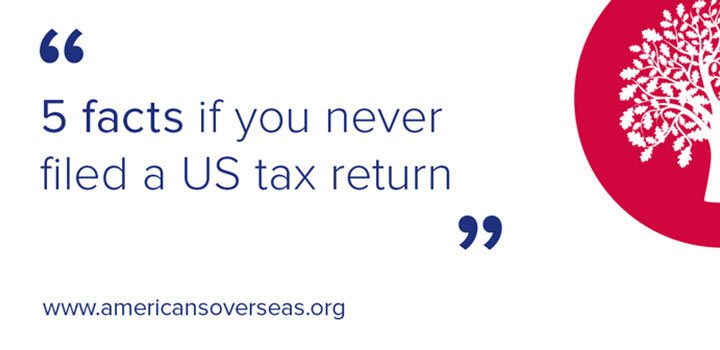
Are you an American living in Europe trying to renounce your US citizenship?

Americans living abroad have their reasons for wanting to give up US citizenship, but due to the pandemic, many are effectively blocked from doing so.
Renounce US citizenship abroad
Americans in Europe are struggling to renounce their US citizenship. In March 2020, the US State Department ordered embassies across the world to limit the services they offer to citizens abroad.
Embassies have slowly reopened in step with their host countries, but one service remains off the menu at the embassies in Europe: the process of renouncing American citizenship.
For nearly two years, Americans have been unable to begin the process of renouncing their US citizenship. But why, when the US allows dual citizenship with many countries, would anyone want to hand in their US citizenship in the first place?
Accidental Americans renouncing US citizenship abroad
Many renouncing are, like United Kingdom’s Prime Minister Boris Johnson, so-called “accidental Americans”: US citizens who have spent little to no time in the United States and only got their American passport through an accident of birth.
The reason Johnson eventually renounced his citizenship, and far and away from the most common reason for it is tax-related since all US citizens – even if they have never earned money in the US and have barely spent any time there – are expected to file an annual tax declaration with the IRS.
FATCA
Recent legislation has made things even more complicated for US citizens abroad. The of 2010 has made it mandatory for foreign banks to report accounts held by US citizens to the IRS – or face penalties themselves.
European banks were expected to comply with FATCA (Foreign Account Tax Compliance Act) by 2020. As financial institutions have become stricter about reporting accounts to the IRS in the lead-up to the 2020 deadline, some American citizens abroad have faced a higher tax burden.
Bank accounts closed because of FATCA
For some, the shutdown of applications has had serious financial consequences.
Some “accidental” US citizens living in Europe have had bank accounts closed and mortgages denied as banks come into compliance with FATCA. If they could only renounce their unwanted US citizenship, they say, things could return to normal.
Renounce US citizenship cost: exit tax
There is also a cost to renouncing citizenship (in addition to the $2,350 fee). The tax rules are complicated, but, in general, an exit tax is calculated for individuals.
Renouncing your US citizenship means forfeiting the right to vote, receive U.S. protection or assistance while abroad and other benefits. But for some Americans, that might feel like a small price to pay to avoid the financial burdens of living overseas.
When will renunciation appointments be available?
A spokesperson for the State Department didn’t directly respond to questions as to why appointments to renounce citizenship remain off-menu when other services that require in-person appointments have been reintroduced.
A spokesperson for the State Department said: “US embassies and consulates are working to resume routine services on a location-by-location basis depending on a wide variety of factors, including public health data, host country and local mandates, and local conditions.”
Need more information on how to renounce your US citizenship abroad and the exit tax?
We, the founders of Americans Overseas, were born in the Netherlands and obtained our American nationality through our (American) mother. When we heard about this for the first time around 2013, we were in total disbelief (it can’t be true!), anger (how can they do this?), fear (am I going to get fined or pick up other problems?), and panic (what should I do?).
It is (unfortunately) true that there is an additional American tax levy. But there’s no information from the local government, and when approached, the consulate referred us to the IRS, and the IRS was impenetrable.
That’s why we started this initiative to help people from all over the world by providing proper information to avoid unnecessary panic and offering help free of obligation and free of charge. If needed, we have a network of affordable professionals (accountants) who can help you with your tax obligations.
If you have more questions about how to renounce U.S. citizenship and US taxes you can contact us at Americans Overseas.
Contact us for more information
Source: Local
Frequently asked questions
Understanding the US tax system, the obligations, and all the additional terms can be difficult. Especially if one lives outside of America. Is your question not answered? Contact us.
-
Who is required to file taxes in the US?
U.S. citizens and resident aliens who live abroad are generally required to file a federal income tax return and pay taxes on their worldwide income.
Read more... about Who is required to file taxes in the US? -
Do US citizens living abroad still have to file taxes in the US?
Yes, US citizens are required to file taxes on their worldwide income, regardless of where they are living.
Read more... about Do US citizens living abroad still have to file taxes in the US? -
How can I cash my US check?
Received an American check? You can cash your check in the following ways: cash the check at your own bank, transfer to another person (endorsement), cash checks using an online service or cash the check by another bank.
Read more... about How can I cash my US check? -
Are there any special tax forms required for US citizens living abroad?
US citizens living abroad may be required to file Form 2555 and/or Form 1116 to claim the foreign-earned income exclusion.
Read more... about Are there any special tax forms required for US citizens living abroad? -
What is FBAR filing?
FBAR (Foreign Bank Account Report) filing is the requirement for certain U.S. individuals and entities to report their foreign financial accounts to the Financial Crimes Enforcement Network (FinCEN) of the U.S. Department of Treasury. The FBAR filing requirement applies to U.S. persons who have a financial interest in, or signature authority over, one or more foreign financial accounts if the aggregate value of those accounts exceeds $10,000 at any time during the calendar year.
Read more... about What is FBAR filing?






